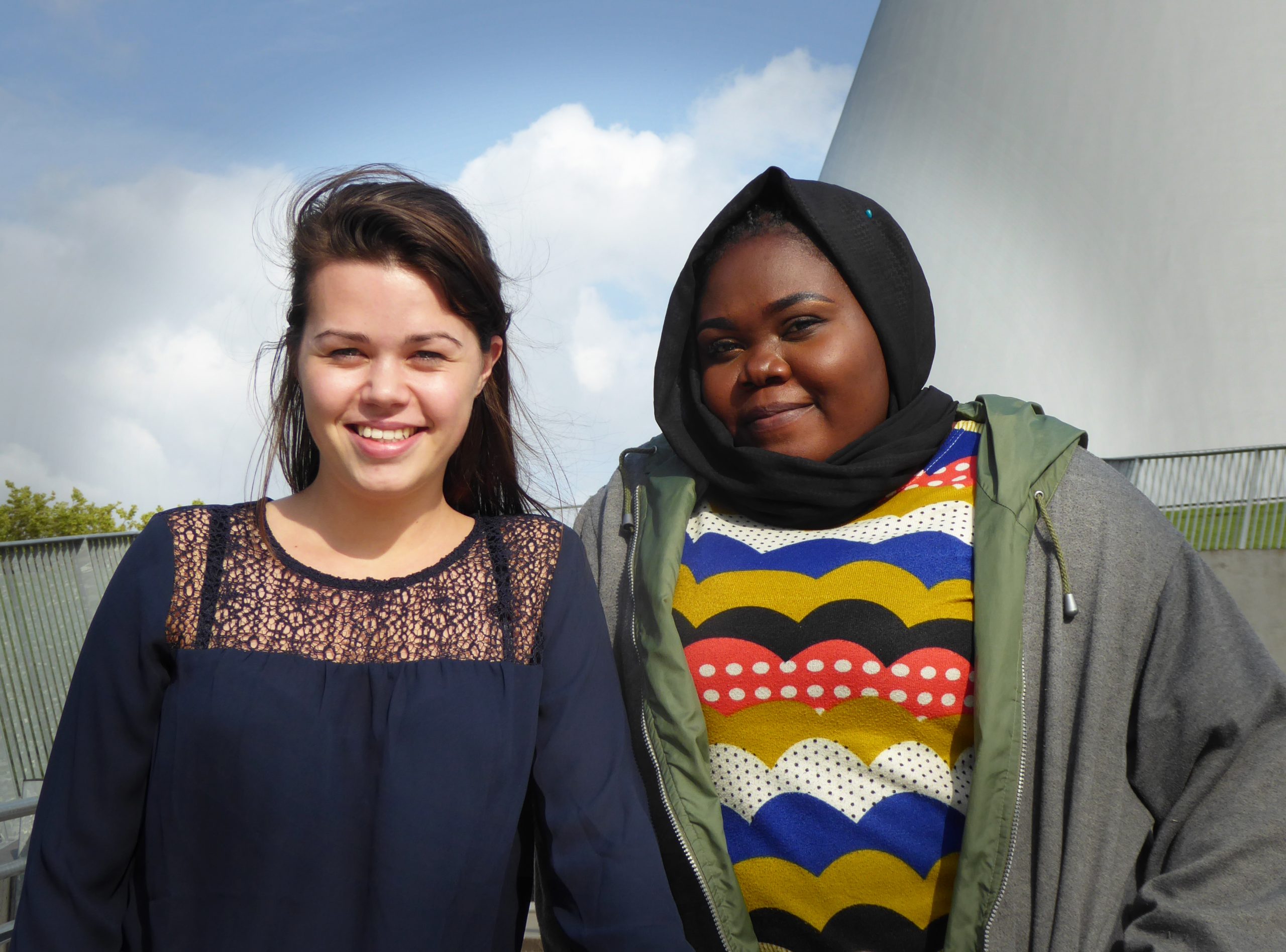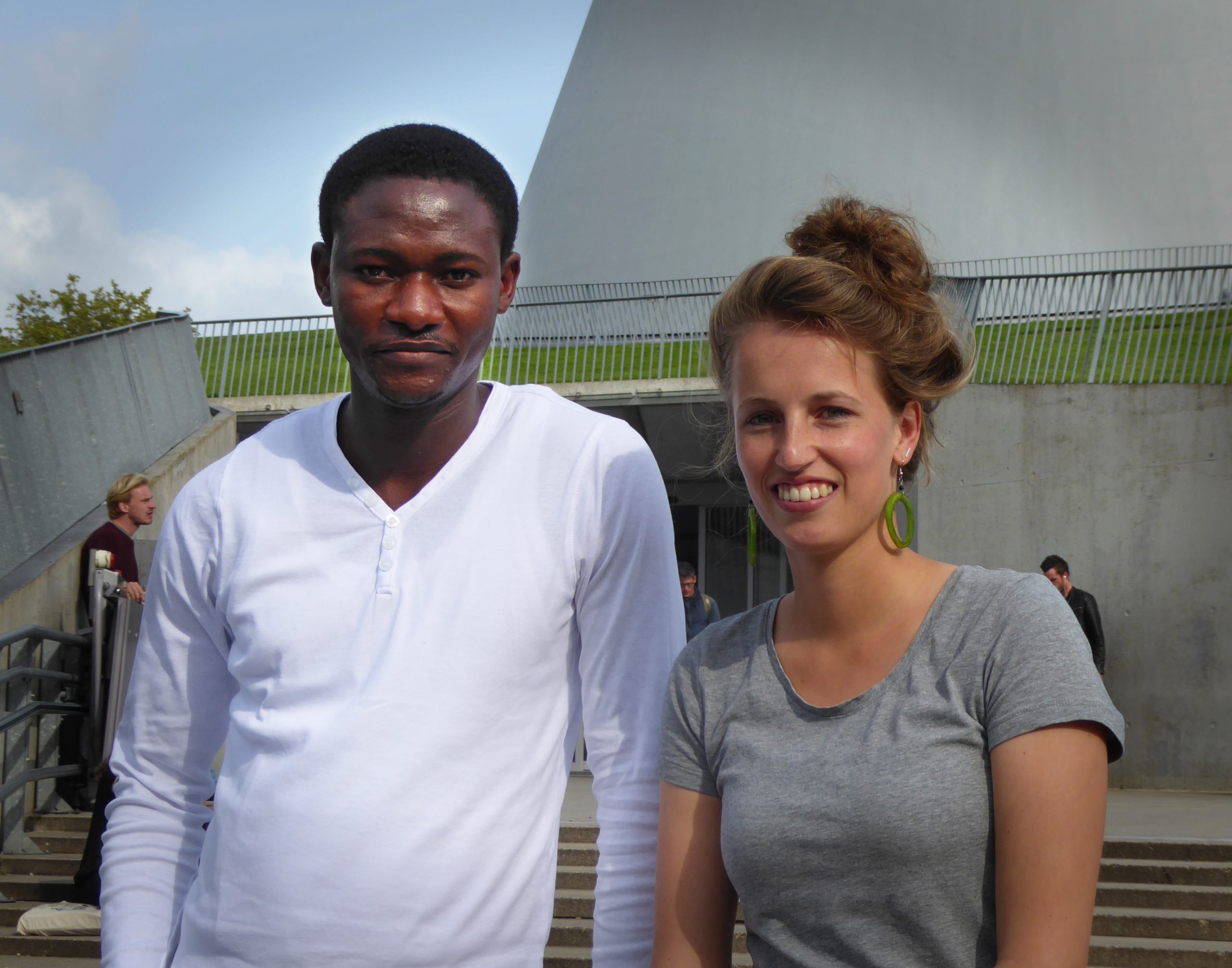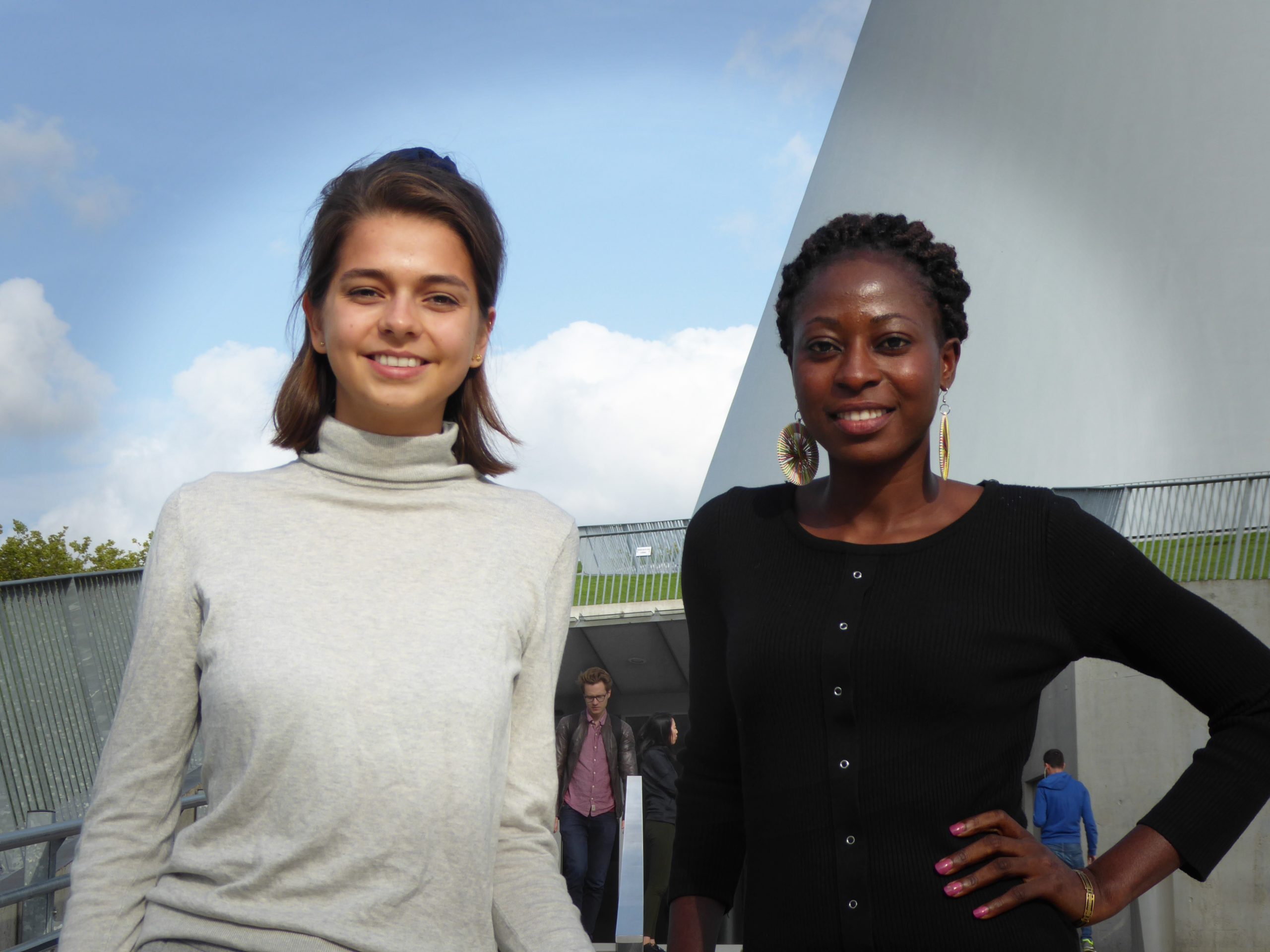You may have seen them on the campus last week. Twelve Dutch students and their Nigerian counterparts who will work on some serious challenges over the next six weeks.
The organisation of the Dutch-Nigerian student business challenge (DNSBC) had selected twelve students in Nigeria last June. Last week, these students came to Delft to meet their Dutch counterparts and to discuss six challenges. Their missions cover themes like health, food, energy, and water. Teams of four students (two Nigerian, two Dutch) will work from Nigeria and the Netherlands on these six challenges over the next six weeks.
 Hilde Brouwers and Kira Alaga. (Photo: Jos Wassink)
Hilde Brouwers and Kira Alaga. (Photo: Jos Wassink)Hilde Brouwers (age 24, Wageningen University) and Kira Alaga (age 23, Kaduna Polytechnic), together with two other students Kessiena Obajuwana and Chantal van der Velden, want to introduce a malaria diagnostic kit, developed by IDE researcher Dr Jan Diehl. Hilde joined the project because she wanted to get into business. “Businesses can be powerful,” she said. “As an NGO you always depend on subsidies. I want to get away from that.” The kit they promote diagnoses malaria in 10-20 minutes, and it costs less than one euro (400 naira). The standard laboratory test takes six hours and costs three to four times more. Still, Kira thinks that acceptance of the malaria-diagnostic kit will be the hardest part. Partnering up with the government for a publicity campaign may help. Hilde, on the other hand, proposes to sell data on the users to pharmaceutical companies for health statistics purposes to reduce the price.
 Onu Ekpa and Marrit Terpstra. (Photo: Jos Wassink)
Onu Ekpa and Marrit Terpstra. (Photo: Jos Wassink)Onu Ekpa (age 31, PhD candidate at Wageningen University) and Marrit Terpstra (age 25, Architecture at TU Delft) have embraced a project to turn manure into biogas for people to use in their homes. The other team members are Innosuccess Destiny and Ayo Olowo. Onu is excited about designing products for the ‘bottom of the pyramid’, for the poorest people. Marrit wants to get to know other cultures and to learn how to design for them. The idea is that dung from abattoirs is mixed with other organic waste to get a product called ‘dungie’ that people can use at home to produce biogas. “People now use kerosene for cooking,” said Marrit. “Biogas would be better for both health and the environment.” Onu adds that biogas would be cheaper as well. They both agree that the primary challenge will not be the product itself, but the strategy to implement it.
 Juliette Kool and Ifeoluwa Olatayo. (Photo: Jos Wassink)
Juliette Kool and Ifeoluwa Olatayo. (Photo: Jos Wassink)Ifeoluwa Olatayo (age 27, University of Abadan) and Juliette Kool (age 21, Applied Earth Sciences, TU Delft) have chosen to reduce the energy use of the Heineken brewery, together with two other students, Safak Topuz and Sandra Obi. The target is to reduce the energy consumption by 40% by 2020 and the proposed solutions should be cost-effective within three years. Kool, who has a passion for renewable energy and green solutions, thinks that electrifying the brewery’s forklifts may reduce the fossil energy use. Ifeoluwa, who joined the project to internationalise her network, believes that installing photovoltaic panels on the forklifts will reduce power consumption even further. In their wildest ideas, they envision overhead power feeds in the factory to make forklifts fully electrical without the need for recharging the batteries. They both hope that the pressure on the project will result in creative and out-of-the-box energy solutions.
The 24 students and the supporting staff will meet again at the Yaba College of Technology in Lagos at the end of October (October 23-27, 2017). There, they’ll present their solutions to an audience of multinationals and local government. The international student challenge is organised by the Delft Global Initiative.
Do you have a question or comment about this article?
j.w.wassink@tudelft.nl


Comments are closed.